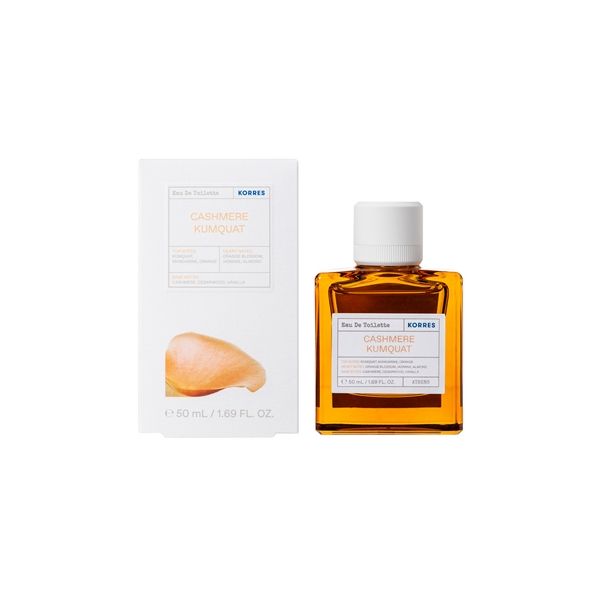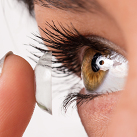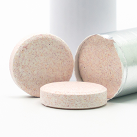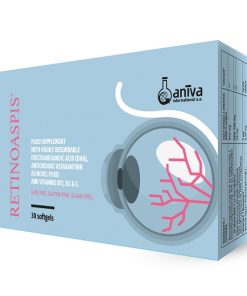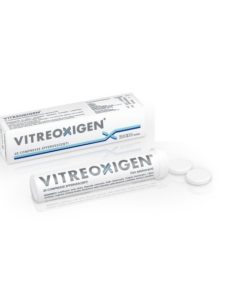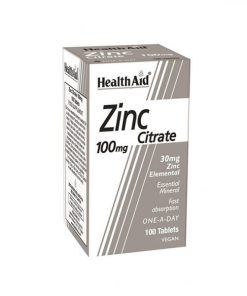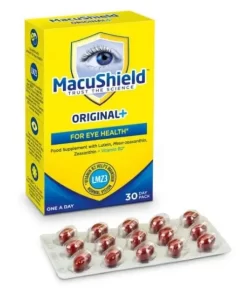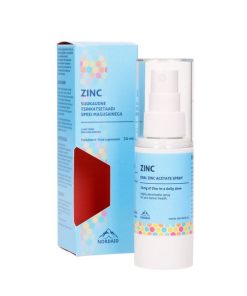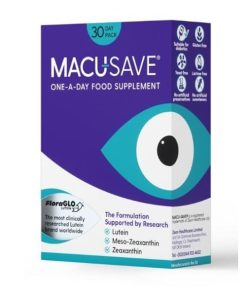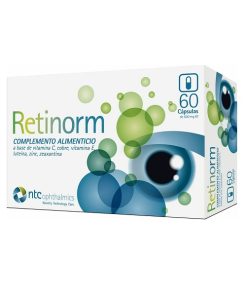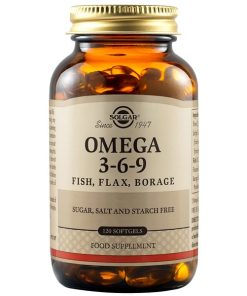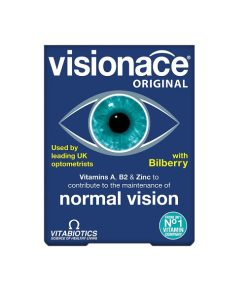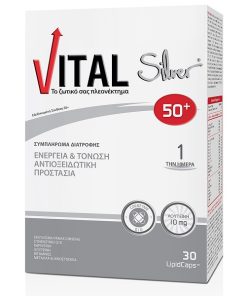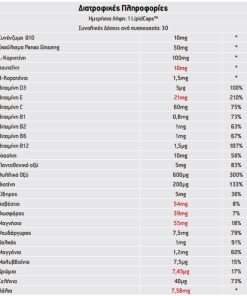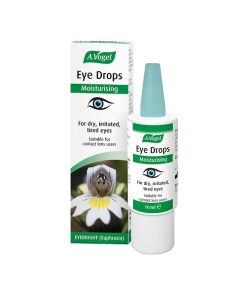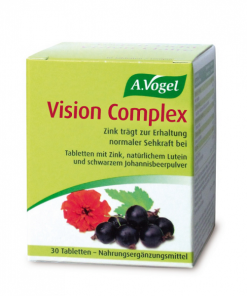
Vision
Retinoaspis is a specialized nutraceutical for the prevention and treatment of diabetic retinopathy and retinal vein occlusion.
It is a nutritional supplement based on minerals, amino acids and vitamins with vegetable extracts.
It contributes to normal carbohydrate metabolism, normal fertility and the maintenance of the normal condition of bones, hair, nails and skin.
MacuShield Original+ Formula is a nutritional supplement containing a mixture of 3 carotenoids (LMZ3), which in combination with vitamin B2 contribute to the maintenance of healthy vision.
With a pleasant taste of mint and mint.
Dietary supplement with meso-zeaxanthin for good eye health.
Contributes to the maintenance of normal vision, plus Bilberry extract and Lutein Esters.
Ideal multivitamin food supplement for men and women over 50 years of age with a specialized composition.
For relief of dry, irritated or tired eyes.
The Best Supplements for Vision
Vitamins are essential nutrients for the health of the body. There are 13 basic types of vitamins, and you can get them by eating a balanced diet. Some vitamins are stored in the body, while others are excreted regularly. Below, we have listed several of these supplements for vision that can help improve your eyesight and keep your eyes healthy, as well as their most common dietary sources.
Vitamin C
Vitamin C is a well-known antioxidant that supports the health of ocular blood vessels. Various studies have confirmed the benefits of vitamin C to our eyes. A study conducted in 2016 on the impact of vitamin C on the development of cataracts in the eye, the sample contained 334 pairs of eyes from twin women and found that participants with the highest vitamin C intake had a 33% reduction in risk. The recommended daily allowance of vitamin C is 90 mg for men and 75 mg for women.
Vitamin E
Vitamin E is an antioxidant necessary for our immune system. It can protect eye cells from damage caused by free radicals. The human body cannot produce vitamin E on its own. So, you need to make sure that you take it on a daily basis through your diet and supplements. Vitamin E can be found in nuts and sweet potatoes. The US Food and Drug Administration recommends 27 mg per day.
Lutein and zeaxanthin
These two carotenoids are considered antioxidants and can be found in the eye. Carotenoids refer to red, orange or yellow pigments that are natural and synthesized by plants. Studies show that lutein and zeaxanthin can reduce the risk of chronic eye disease. They can be found in all orange and yellow vegetables such as sweet potatoes, carrots, pumpkins and papaya.
Green leafy vegetables such as cabbage and spinach are also rich sources of lutein and zeaxanthin. Although there is no standard daily recommended intake, some studies have shown benefits by taking 10 mg / day of lutein and 2 mg / day of zeaxanthin.
Essential Fatty Acids DHA and EPA
Good fats are essential fatty acids and are vital for the proper functioning of all body tissues. Fatty acids such as omega-3 can be found in fish and fish oils. Fatty acids such as DHA (docosahexaenoic acid) and EPA (eicosapentaenoic acid) are vital for retinal function and development. The recommended daily intake of DHA and EPA is 500 mg (0.5 g) and you can easily take your daily amount of one serving of salmon or oysters. Omega-3 fats protect cells, strengthen the immune system, and are a great source of energy. Low levels of DHA / EPA have been linked to dry eye syndrome and other eye diseases, including retinopathy and AMD.
Zinc
Zinc is a vital metal for our immune system, as it helps promote protein synthesis, wound healing, and cell division. A high concentration of zinc is found in the part of the retina that is affected by AMD, but this amount decreases with age. Zinc deficiency has been linked to vision problems such as cataracts, night blindness, and total vision. The recommended daily allowance is 11 mg for men and 9 mg for women.
Discover at Fotopharmacy therapies and complete series of food supplements which are the first effective treatment against eyesight loss. Choose food supplements which protect from eyesight loss to a satisfactory extent, while reducing the danger of the illness getting worse since they have vital nutrients which are particularly useful and effective.

 Ελληνικά
Ελληνικά













